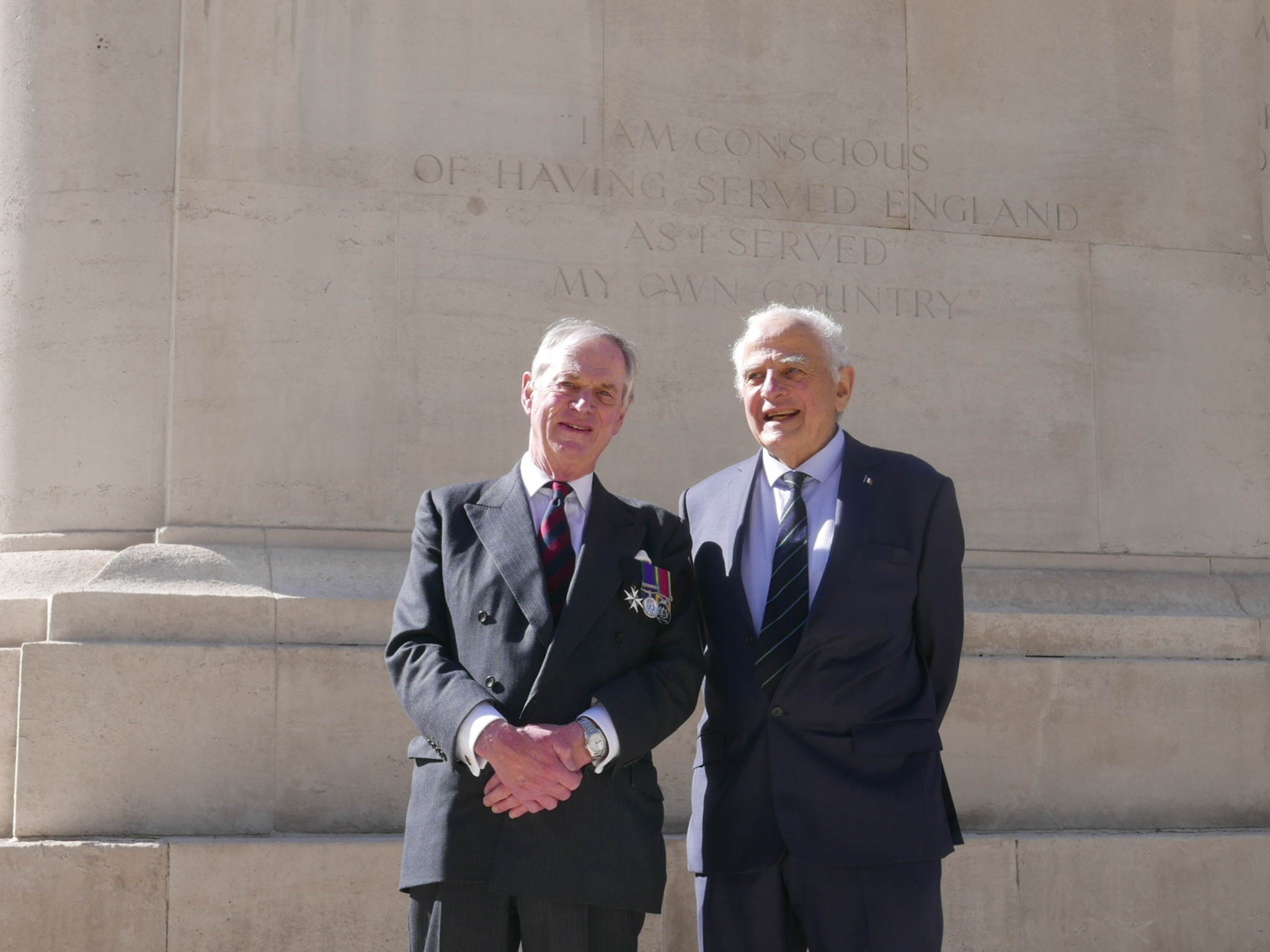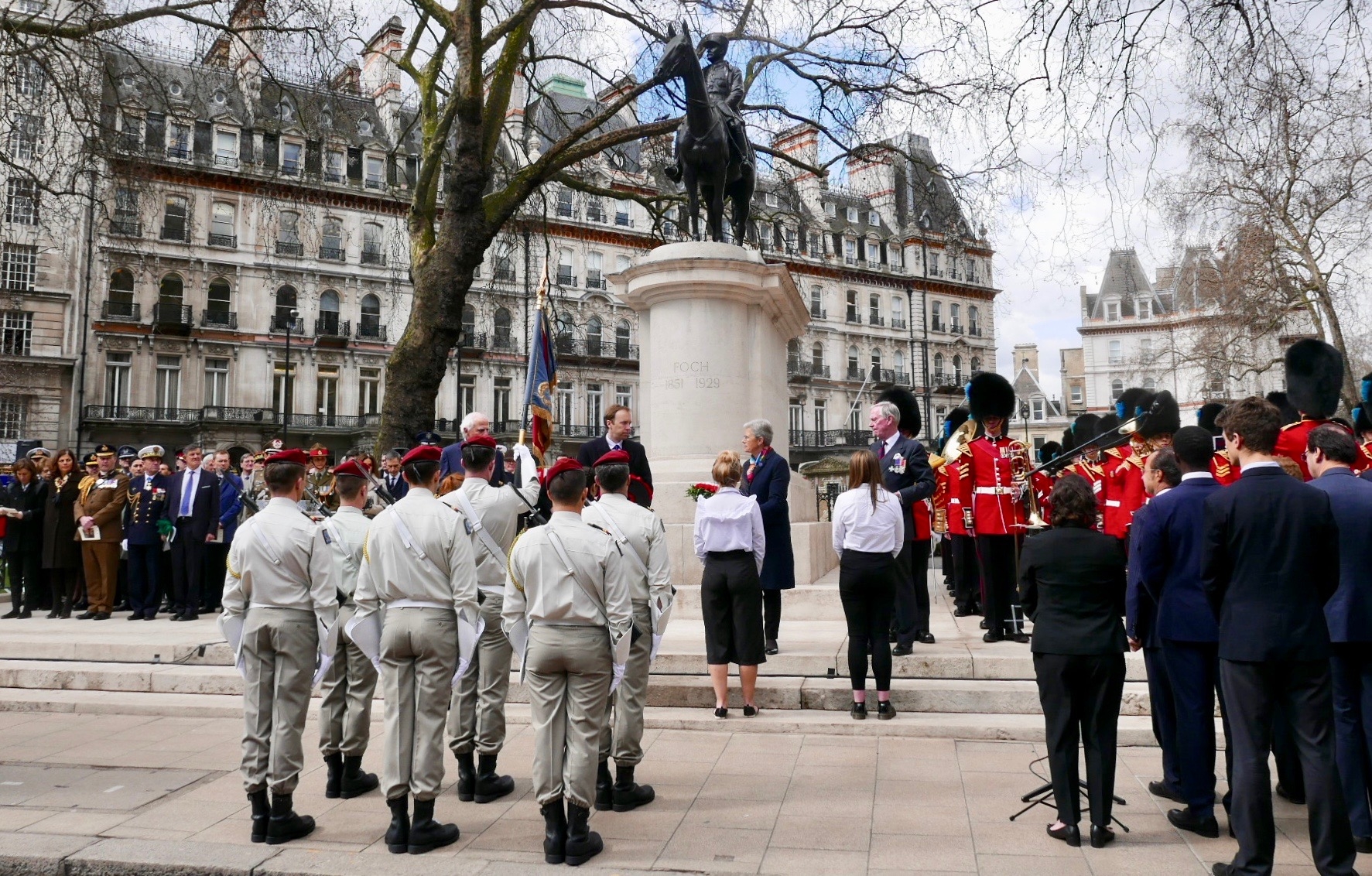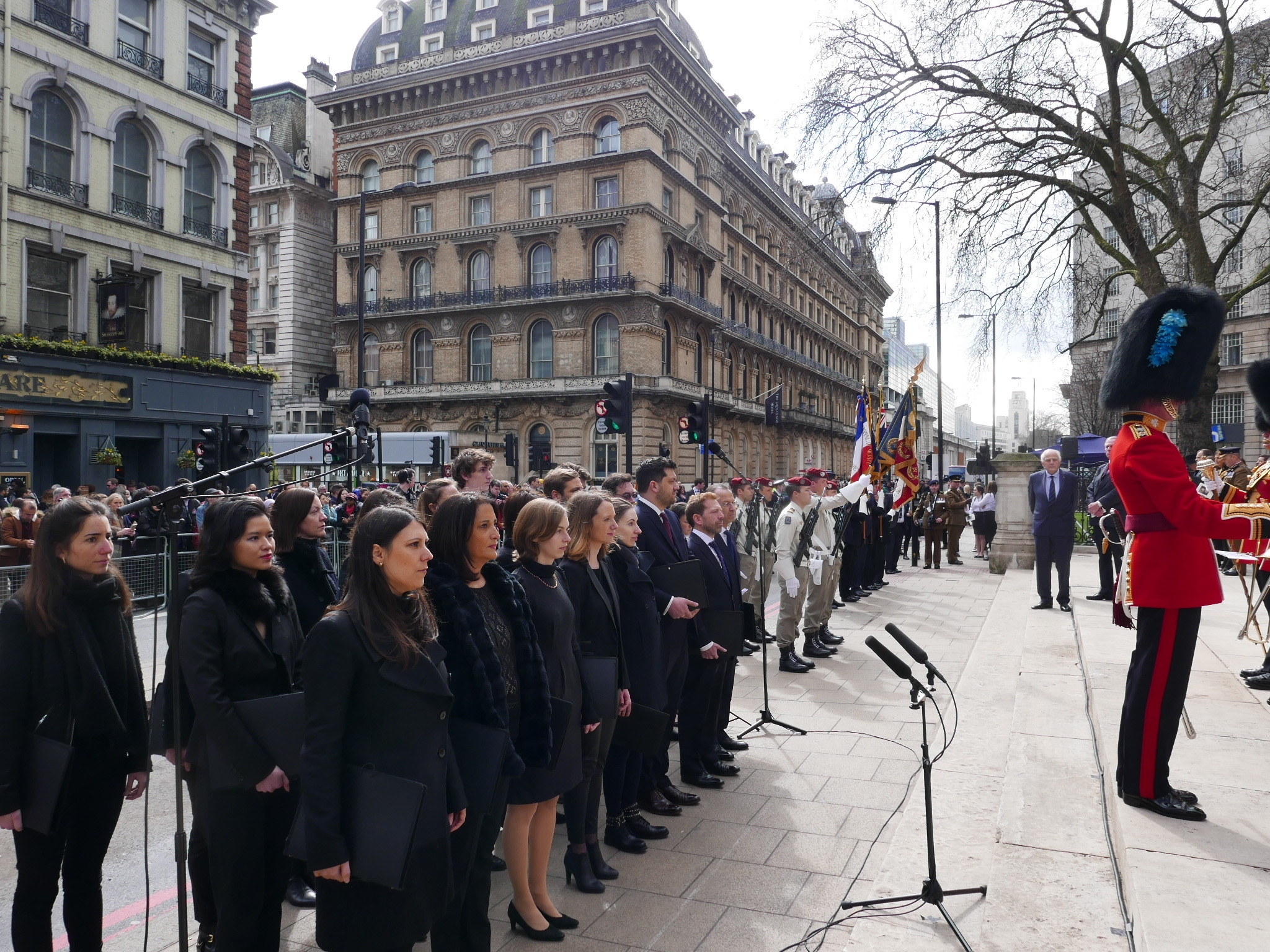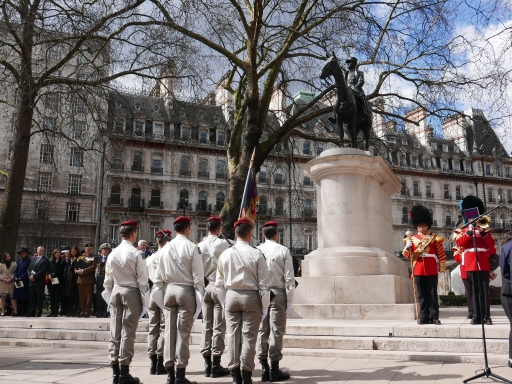Ceremonies have been held in both the UK and France to mark the centenary of Ferdinand Foch’s appointment as Allied Supreme Commander on 26 March 1918, as the last big German offensive of the First World War threatened disaster on the Western Front.
100 years on, British and French ministers, together with representatives from the nations who fought together in the Entente, gathered in London to salute Foch’s inspirational leadership at the statue unveiled in his memory opposite Victoria Station in 1930.
For two of the guests, this was also something of a family occasion. Eric Bécourt-Foch, great grandson of Marshal Foch, and Lord Astor of Hever, grandson of Britain’s Western Front commander, Field Marshal Sir Douglas Haig, stood together as the French Guard of Honour took up positions.
Leading the tributes, UK Culture Secretary Matt Hancock said: “The decision to coordinate military operations under Foch’s leadership was crucial. It underpinned the Allies’ ability to withstand the German spring offensives and then to make their own successful advances later in 1918.
“This proud Frenchman once said, as is inscribed on the very statue before us, that he was conscious of having served England as if it were his own country. In this final year of the Government’s centenary commemorations, it is right that the United Kingdom recognises the significant contribution made by Marshal Foch to the outcome of the war.”
 Lord Astor of Hever (left), grandson of Sir Douglas Haig, with Eric Bécourt-Foch in front of the inscription bearing Marshal Foch’s words (Photo: Centenary News)
Lord Astor of Hever (left), grandson of Sir Douglas Haig, with Eric Bécourt-Foch in front of the inscription bearing Marshal Foch’s words (Photo: Centenary News)
Geneviève Darrieussecq, French Minister of State for Defence with responsibility for veterans, arrived in London a day after taking part in commemorations in Doullens, the Somme town where the commandement unique, or unified command, was agreed at a moment of great crisis.
Unity lies at the heart of this commemoration, she said.
“Our countries, faced with immense danger, were able to go beyond their respective interests and national inclinations in favour of unity. And that was the decisive factor in victory. Circumstances today are of course completely different, but there is a lesson here which can still inspire us. The 20th century teaches us that we overcome the worst ordeals when we are united.”
Nations laying wreaths at the ceremony included the United States, Portugal and Italy, a reminder that Foch’s authority extended beyond the Allied armies that had first entered WW1 in 1914.
But a unified command didn’t mean integration. Foch’s own thoughts on what this meant in practice featured among the readings: “One talks, one discusses, one persuades, one does not give orders. One says: ‘That is what should be done; it is simple; it is only necessary to will it’.”
 Britain’s Secretary of State for Culture, Matt Hancock, and Geneviève Darrieussecq, French Minister for Veterans, prepare to lay wreaths, accompanied by Eric Bécourt-Foch and Lord Astor of Hever (Photo: Centenary News)
Britain’s Secretary of State for Culture, Matt Hancock, and Geneviève Darrieussecq, French Minister for Veterans, prepare to lay wreaths, accompanied by Eric Bécourt-Foch and Lord Astor of Hever (Photo: Centenary News)
Lord Astor of Hever and Erich Bécourt-Foch reflected on the close ties between their forebears, Field Marshal Haig and Marshal Foch. Haig accepted Foch’s command as the Germans were poised to drive a wedge between the British and French forces on the Western Front, threatening Paris and the Channel ports, Eric Foch pointed out.
“They worked very well together and I’m delighted to be here to commemorate that,” Lord Astor told Centenary News. “Foch was a great admirer of my grandfather. They learned from their mistakes and built up these very powerful armies that defeated the Germans.”
As Professor Sir Hew Strachan notes in his historical overview for the centenary service, when Foch decided to return to the offensive in July 1918, he and Haig ‘now were the right men in the right place, ready to exploit the opportunities which presented themselves.”

A French chamber choir, Les Fauristes, sang at the service in Lower Grosvenor Gardens, accompanied by the Band of the Irish Guards (Photo: Centenary News)
The remembrance service for Marshal Foch was organised by the UK Government as part of Britain’s final year of national commemorations marking the First World War Centenary. On August 8, there’ll be a service at Amiens Cathedral in France to mark the centenary of the start of the Hundred Days Offensive. A ballot is being held for tickets. Apply by April 9. See Amiens100 for details.
Reporting from the ceremony by CN Editor
Images: Centenary News
